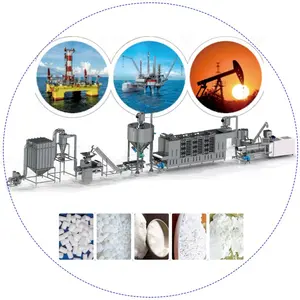Exploring the Versatility of Grist Mills
Grist mills, historically pivotal in the development of agriculture, have evolved significantly from their traditional roots. Today, they serve as an essential component in the agricultural and food production industries, offering a range of functionalities from grinding grains to producing various types of flour. The term grist mill can refer to both the old grist mills steeped in history and the modern adaptations that continue to play a vital role in grain processing.
Types and Mechanisms of Grist Mills
The diversity in grist mills is evident in the variety of milling mechanisms they employ. The core types include stone burr, steel burr, and impact burr mills, each with unique applications. Stone burr mills, reminiscent of the historic grist mill, are renowned for their ability to grind dry grains and their durability. Steel burrs offer versatility, grinding wet, dry, and cracked grains, while impact burrs are designed for rapid output, a critical factor in high-volume settings.
Applications and Features of Modern Grist Mills
Modern grist mills are not limited to the simple production of flour. They are integral in creating a variety of grist & grain products, catering to both commercial and artisanal needs. Features such as milling speed and noise levels are crucial considerations. Electric mills, for instance, are favored for their speed, which is a significant advantage for businesses requiring a minimum production capacity. The difference between grist mill and flour mill lies in their application and construction, with grist mills often being more versatile.
Materials and Advantages of Grist Mills
The construction materials of a grist mill play a significant role in its longevity and efficiency. For example, a water powered grist mill harnesses natural energy, offering sustainable operation, while the robust materials used in the grist mill inn constructions ensure endurance over time. The advantages of modern grist mills are numerous, including the ability to produce a range of textures and the efficiency of electric models for swift production.
Choosing the Right Grist Mill
Selecting a suitable grist mill requires careful consideration of the intended use and desired output. Whether one is looking for a grist mill near me for local artisanal production or a more substantial model for commercial purposes, it is essential to assess the milling mechanism, noise level, and speed. For those interested in historical models, an old grist mill near me search may yield options for viewing or even purchasing a piece of history.
Conclusion
For those in the market for a grist mill, whether it be a model echoing the historical grist mill design or a modern electric version, Alibaba.com offers a diverse selection. With a variety of models to suit different needs and budgets, and the convenience of a platform that operates around the clock, prospective buyers can find the right grist mill without the constraints of time.











































 浙公网安备 33010002000092号
浙公网安备 33010002000092号 浙B2-20120091-4
浙B2-20120091-4